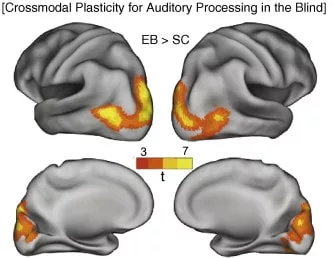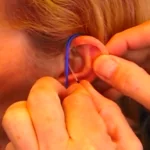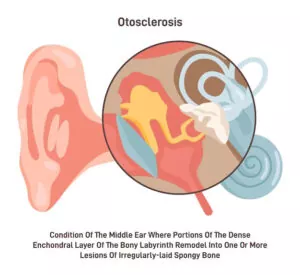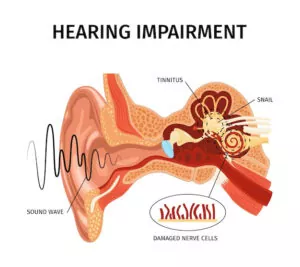
There is some evidence to suggest that people with hearing loss may experience an enhancement in other senses, such as vision and touch. This phenomenon is known as cross-modal plasticity, which refers to changes in the brain that occur as a result of sensory deprivation or loss in one modality (such as hearing).
For example, a study published in the journal Frontiers in Human Neuroscience found that people with hearing loss had improved visual attention and spatial awareness compared to those with normal hearing. Another study published in the journal Neuropsychologia found that people with hearing loss had better tactile (touch) discrimination compared to those with normal hearing.
However, it is important to note that these findings are not consistent across all studies, and the extent to which cross-modal plasticity occurs in people with hearing loss may depend on a variety of factors, such as the severity and duration of the hearing loss, the age of onset, and the individual’s brain structure and function.
Overall, while it is possible that people with hearing loss may experience an enhancement in other senses, more research is needed to fully understand the nature and extent of these effects.
References:
-
Bavelier, D., Levi, D. M., Li, R. W., Dan, Y., & Hensch, T. K. (2010). Removing brakes on adult brain plasticity: From molecular to behavioral interventions. Journal of Neuroscience, 30(45), 14964-14971.
-
Gougoux, F., Zatorre, R. J., Lassonde, M., Voss, P., & Lepore, F. (2004). A functional neuroimaging study of sound-induced analgesia. Neuroreport, 15(17), 2661-2665.
-
Kishon-Rabin, L., & Karni, A. (2007). Cross-modal plasticity in the deaf: An fMRI study. Neuropsychologia, 45(2), 311-318.






